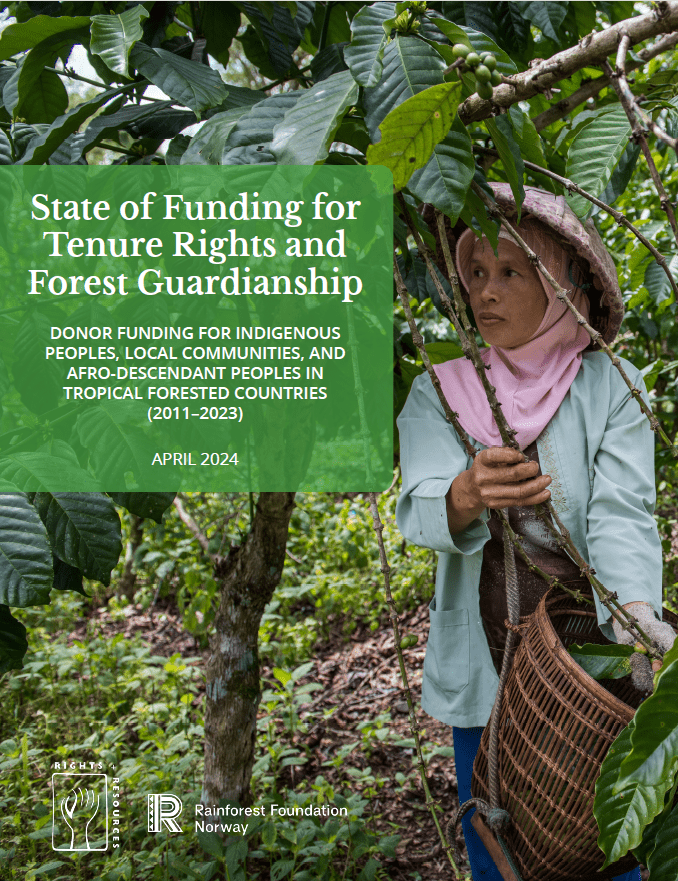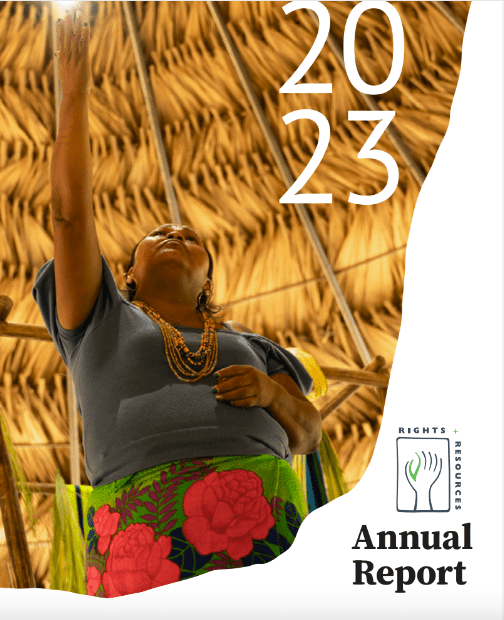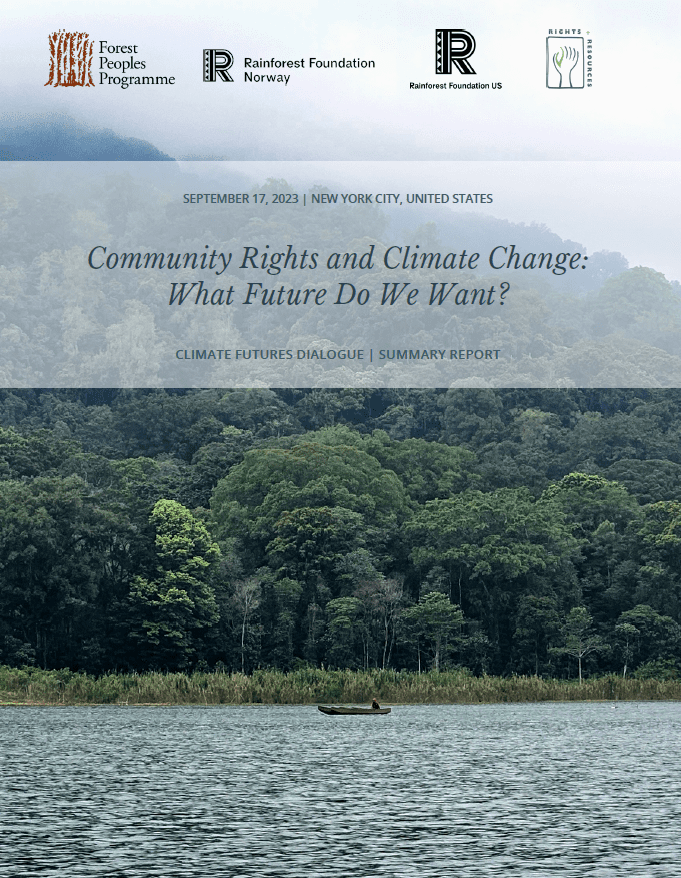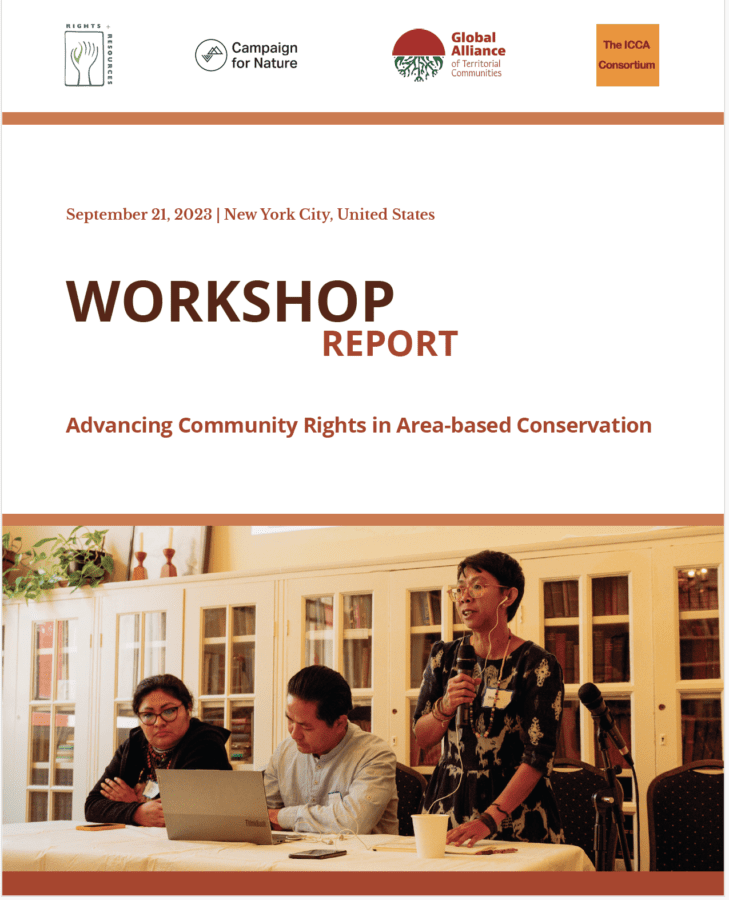This document includes the results of the study Contributions of Indigenous Women's Entrepreneurship in Colombia to their Economy, Territorial Governance and Climate Resilience during COVID-19, which brings together four case studies of entrepreneurship led by Indigenous women from different regions of Colombia.
Rights and Resources Initiative and Rainforest Foundation Norway are thrilled to announce the launch of the Path to Scale dashboard, a new open-source online tool that gives easy access to donor funding data for Indigenous Peoples’, Afro-descendant Peoples’, and local communities’ tenure and forest guardianship.
Discover the power of collective action: learn about some of our pivotal successes of 2023 that energize us as we embark upon our 2024 workplans.
On 17 September 2023, over 70 rightsholder representatives and their allies joined together for a global dialogue on how climate finance can or should support their vision for the future in a world impacted by climate change. Held under Chatham House Rules, the dialogue sought to go beyond known gaps and challenges to address the critical needs of rightsholders and begin defining pathways that can support a more just, equitable, inclusive, sustainable, and climate-resilient future for all.
Growing recognition of the key roles of Indigenous Peoples, Afro-descendant Peoples, and local communities in resource governance has led to many international commitments, but taking actions to advance human rights-based approaches to climate and conversation remains a challenge. This policy brief explores the structural constraints to rights-based action and shares a framework to help implement these commitments.
This year's Climate Week theme, "We Can. We Will", focused on the urgent need for action, provided the backdrop for 25 leaders from Indigenous Peoples, NGOs, Civil Society and donors to discuss what they can do to ensure that the rights and priorities of communities are at the center of global area-based conservation efforts. This report brings together the most important aspects of this dialogue.






